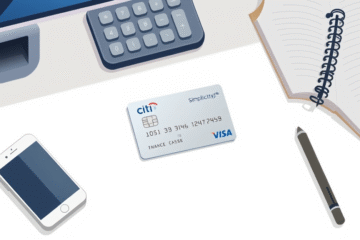Debt Recovery has become a crucial challenge for many individuals seeking financial stability in today’s economy.
Taking control of your financial future requires a comprehensive understanding of debt management strategies and disciplined execution.
This step-by-step guide will provide you with practical solutions to overcome financial obstacles and regain control of your monetary situation.
By following these proven methods, you can create a sustainable path toward financial freedom and long-term stability.
Understanding Your Financial Situation
Understanding your financial situation is crucial in managing and improving your monetary affairs. Begin by evaluating your income, documenting all sources
such as salary, investments, and side earnings. Next, track your expenses meticulously. Including fixed costs like rent, utilities, and variable expenditures such
as groceries and entertainment. A thorough review of your assets is relevant. This includes properties, savings, and investments that can contribute to your
financial health. On the flip side, analyze liabilities, such as loans or credit card debts, to get an understanding of financial obligations. Recognizing these
aspects forms your financial baseline. Regular reassessment is essential to adapt to changing life circumstances and goals.
“Knowledge is power when it comes to financial health.”
Making informed decisions helps maintain stability. Understanding assets, liabilities, and
expenses is crucial in overcoming debt. Regular financial evaluation empowers you to adapt effectively, encouraging better financial control and improved
long-term strategies.
Creating a Budget
To create a budget, start by listing all income sources and monthly expenses. Use a budgeting tool like Chase Bank’s budget guide to organize finances.
Different strategies can help, such as the zero-based or the 50/30/20 rule. This latter method allocates 50% of your income to needs, 30% to wants, and 20% to savings or debt.
Budgeting plays a crucial role in financial control, helping track spending and ensuring goals are met.
- Zero-based budgeting: Assign every dollar a purpose monthly.
- 50/30/20 rule: Balance needs, wants, and future savings.Read more on Investopedia.
Developing a budget is essential for managing finances effectively. Use these proven strategies to take charge of your financial future and prevent debt.
Setting Clear Financial Goals
Establishing achievable financial goals is critical for financial stability and success. Using SMART criteria—Specific, Measurable, Achievable, Relevant, Time-bound—ensures goals are practical and actionable.
Incorporate these criteria to enhance your goal-setting strategy. Create a clear roadmap by categorizing goals as short-term, medium-term, and long-term objectives.
Short-term goals, such as saving for an emergency fund, can be reached quickly and provide immediate benefits. Aim to set aside a portion of your income each month to build this fund.
U.S. Bank financial goals suggest similar practices for effective planning.
Medium-term goals might include paying off credit card debt, requiring more time and commitment, but offering greater rewards and financial freedom once achieved. Create a plan for these goals using consistent savings plans and debt reduction strategies.
Long-term goals, like retirement savings or buying a home, demand patience and sustained efforts. Achieving these goals might involve investing in diversified portfolios or following a structured savings plan.
Utilize educational resources like SmartAsset financial goals guide to deepen your understanding and plan effectively.
By understanding and categorizing your financial ambitions, you can more effectively manage your resources and achieve your desired outcomes. Leveraging the SMART approach further enhances the clarity and attainability of your financial goals.
Tracking Income and Expenses
Tracking your income and expenses is vital for financial control. Utilize methods such as manual pen-and-paper logs, spreadsheets, or modern apps. Budgeting apps like Mint offer seamless and efficient tracking.
These tools provide insights into spending patterns, helping you make informed decisions.
- Manual Pen-and-Paper: Record each transaction immediately.
- Spreadsheets: Customize tracking based on personal preferences.
- Mint: Sync bank accounts for automatic updates.
Additionally, keeping digital copies of receipts enhances record consistency.
| Method | Description |
|---|---|
| Manual Recording | Write down transactions as they occur. |
| Spreadsheets | Organize data in digital sheets. |
| Apps | Use automated syncing for real-time data. |
Leverage these methods to maintain financial discipline and foresee budgetary adjustments. Regular reviews and adjustments ensure you stay aligned with your financial goals.
Explore Mint and other tools to advance your tracking efficiency.
Prioritizing Debt Repayment
Prioritizing debts for repayment is crucial for financial stability. Focusing on high-interest debts first, known as the debt avalanche method, can save significant amounts of money. NerdWallet debt strategies suggest assessing your debt load to identify areas to tackle.
It’s essential to understand each debt’s interest rate and total amount owed. Large amounts could take longer to clear but may accrue less interest. US News debt repayment tips emphasize using repayment strategies to accelerate debt clearance.
Creating a detailed repayment plan incorporates all these elements, ensuring financial control. Incorporate all income, expenses, and debt details to ensure a comprehensive view. Use available income to prioritize higher-interest debts, adjusting payments dynamically. Establishing and sticking to a well-informed plan will expedite the debt-free journey.
Committing to this strategy provides more financial freedom and eases future financial planning. Keeping consistent with the plan prevents slipping back into debt. Develop habits, such as regularly reviewing finances, to maintain control and reach financial goals. Consistent financial monitoring is key to avoiding future debt issues.
Implementing these strategies helps in effectively managing and reducing debts, creating a more secure financial future.
Fostering Good Financial Habits
Understanding and cultivating good financial habits is essential for maintaining financial health and potentially recovering from debt more efficiently. These habits can significantly impact your overall financial situation, helping you manage money wisely and avoid falling back into financial pitfalls.
Let’s explore some habits that contribute to improved financial well-being. Consistently tracking income and expenses allows you to stay informed about your financial standing, preventing overspending and identifying saving opportunities.
Creating and adhering to a budget guides your spending, ensuring that you allocate your resources efficiently. This practice supports better financial control and helps develop discipline in money management.
List of key habits to foster financial health:
- Automatic savings: Setting aside funds regularly for savings, ensuring that you build wealth over time.
- Paying bills on time: Avoids late fees, keeping your credit in good standing.
- Limiting unnecessary expenses: Identifying areas where you can cut back improves your saving potential.
- Negotiating with creditors: Helps manage or reduce debts, making repayment plans more manageable.
These habits, when practiced regularly, can greatly aid in debt recovery and foster sustainable financial management.
Building an Emergency Fund
An emergency fund serves as a financial safety net, offering crucial support during unexpected economic disruptions. It helps avoid reliance on credit or loans that could add to financial strain.
Having three to six months’ worth of expenses saved is recommended for comprehensive stability (Investopedia’s Guide).
To build an emergency fund, begin by setting clear savings goals and track monthly expenses carefully.
Use strategies like automating savings to ensure funds are set aside consistently.
- Track and cut down on unnecessary expenses.
- Allocate a portion of income towards savings each month.
- Consider increasing income through side jobs.
- Utilize any windfalls, such as bonuses, for savings.
Additionally, maintain a separate account to avoid dipping into this fund prematurely.
Prioritizing an emergency fund enhances financial resilience by providing insurance against setbacks and fostering long-term security.
This approach aids in not just financial recovery but also in planning for unforeseen financial challenges.
Regularly Reviewing Your Budget
Regular budget reviews are crucial for adapting to changing financial situations. By consistently evaluating your budget, you can identify discrepancies and adjust accordingly. A well-maintained budget helps you stay aligned with your financial goals, ensuring spending doesn’t go unchecked. Experian suggests reevaluating your budget when facing new financial goals or unexpected expenses. Regular reviews also provide the opportunity to prioritize spending and identify areas where you might be able to cut costs.
During budget reviews, consider asking yourself these important questions: Are your spending habits supporting your financial goals? Do you need to adjust your savings contributions after any financial changes? Is there room to cut costs without sacrificing necessities? Are there any subscription services you no longer use or need?
Implementing regular budget checks keeps you aware of your financial situation and promotes better money habits. Make time to perform these checks to stay on top of your finances.
Regularly updating your budget can impact reaching your financial aspirations significantly. By actively managing your budget, you are fostering financial discipline that leads to long-term success.
Achieving financial freedom is a journey that requires dedication and consistent effort.
By implementing these strategies and maintaining good financial habits, you can successfully navigate your way out of debt and build a secure financial future.



0 Comments